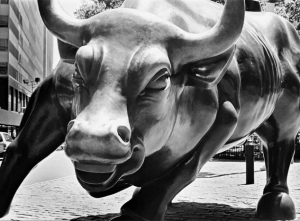Taking Aim at Wallstreet
“Unless your business model depends on cutting corners or bilking your customers, you have nothing to fear from this reform.”
By Saif Qureshi, Senior Online Editor
It has been nearly four years since the beginning of the financial meltdown and the global economy is still gasping for breath. The world has learned some important lessons and a waveof change has been set into motion—especially in the United States, where the crisis struck hardest.
During this past summer, Barack Obama signed legislation that promises to protect consumers and ensure economic stability in the future. This was the government’s answer to one of the biggest economic downturns the country has seen since the Great Depression.
Known as the Dodd–Frank Wall Street Reform and Consumer Protection Act, the legislation’s main focus is to improve transparency and accountability in all financial dealings. The new laws allow the government to break up companies that threaten the economy, create a new agency to guard consumers and put more watchdogs over the shadowy deals that regulators missed during this last recession. The act’s purpose is to create a new set of rules that will prevent the financial crisis from happening all over again.
The legislation also aims to make sure that US taxpayers will never have to save too-big–to-fail banks with billions of dollars in bailouts. “Because of this law, the American people will never again be asked to foot the bill for Wall Street’s mistakes,” Obama said.
However, critics are saying that the bill ignores the root causes of the recession. They claim that the added consumer protections will burden small banks and businesses and make it difficult to create jobs. With the US congressional elections in November and unemployment near 10%, this becomes a major issue. Critics are also complaining that the new reforms give too much power to the government.
Nonetheless, proponents of the legislation claim that these new laws will help to wipe out fine print and hidden fees for people, thereby further empowering consumers and investors. It would also help to control Wall Street and stop unscrupulous lenders who could bring down the entire economy again.
Another purpose of the new legislation is to prevent banks from trading for their own profits. Previous to the recession, many banks traded potentially lucrative over-the-counter derivates, which were high risk. In fact, it was a special type of derivative called the mortgage-backed security which triggered the financial meltdown in 2008.
The government is also introducing new rules to limit executive compensation and corporate governance. This is in response to several executives who received excessive bonuses during the recession while profits fell. Voters were not happy as some of these executives were part of companies that were bailed out by the public’s tax dollars.
The law should provide certainty “to everybody from bankers to farmers to business owners,” says Obama. “And unless your business model depends on cutting corners or bilking your customers, you have nothing to fear from this reform.”
Ruth Porat, chief financial officer of financial giant Morgan Stanley, is pleased to see the bill signed, as it put “some clarity around the issues.” However, not all the banks were happy.
Jamie Dimon, chief executive of JPMorgan Chase & Co. (second largest bank in the U.S), was one of the few bank executives not invited to the signing of the bill. Prior to the passage of this bill, Dimon had a good relationship with the Obama administration, but later became a critic of the reform of the banking industry.
Even though the bill is now law, there are certain rules that have not come into effect. The true impact of the bill should be discovered in the next two years as the different regulatory agencies create new rules that comply with the various sections of the Act. Only then is the true impact and significance of this bill going to become known.
By Saif Qureshi, Senior Online Editor
In association with:
The ARB Team
Arbitrage Magazine
Business News with BITE
Liked this post? Why not buy the ARB team a beer?
Just click an ad or donate below (thank you!)






























Share the post "Taking Aim at Wallstreet"